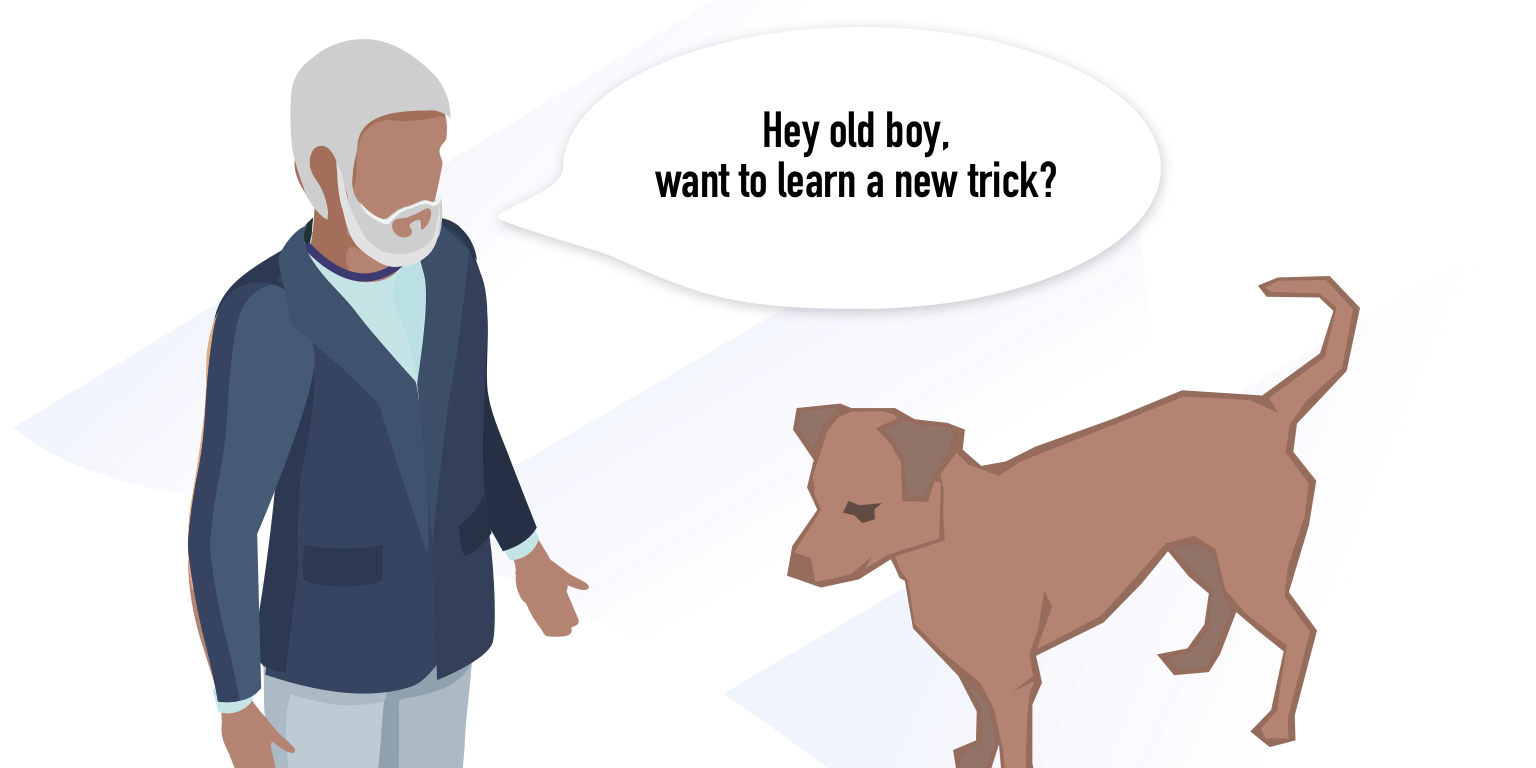When it comes to learning new things, do you know some people who just seem uniquely superior at acquiring and retaining knowledge while others struggle to learn new concepts? Can a person’s mindset affect their ability to learn new skills?

These thoughts inspired researcher Daniel Greene. With a background in applied social psychology and a specialty in academic mindsets, he found himself questioning whether a person’s mindset affects their ability to learn new job skills later in life.
Greene studied this topic for his thesis, which hypothesized that the mindsets that people have about job skill retraining can facilitate or hinder their interest in getting retrained.
What are academic mindsets?
The study of academic mindsets looks at how someone’s beliefs can affect their interpretation of a situation. For example, if a student has a growth mindset, they will be more likely to persevere when things get difficult.
The idea is that a person brings one of two mindsets around intelligence to any situation, fixed or growth.
- Fixed mindset: people believe that intelligence is something that is fixed and cannot change.
- Growth mindset: people believe that intelligence can be grown with effort and using the right strategies.
What a person believes about intelligence affects the choices he or she makes in academia. For instance, someone with a fixed mindset will be less likely to put extra effort into learning or seek help. This results from their belief that it won’t make a difference in their overall intelligence.
Can all this be true? How can it be tested? Greene began seeking measurable results to explore these questions about mindsets and job skill retraining.
How do you measure mindsets?
The ability people have to learn new job skills impacts our global economy. As some industries move towards automation, the skilled workers in those fields must adapt to their changing work conditions. If those workers aren’t nimble, they could be left behind.
The driving force behind Greene’s research is to help people feel like they can contribute to society. Their meaningful involvement using new skills will positively impact the organization or industry where they work.
Think about this idea of mindset in the construct of your own life. How often have you gone into a situation with a negative mindset, only to find that your experience reflects that? On the other hand, have you ever gone into a situation with a positive outlook; actually finding that you enjoyed an event or activity? Touted for ages, the power of positive thinking likely affects behavior. But turning those opinions into solid, factual evidence came with a unique set of opportunities and challenges.
The method
In order to measure people’s mindset, Greene conducted a series of experiments looking at two different beliefs around job skills.
- Skill Acquirability: beliefs about whether they can learn new job skills
- Job Availability: beliefs about whether there are good jobs out there in the economy if you have the right set of skills
He recruited participants with Positly and then asked them to read an article. After reading the article they responded to open-ended questions, reflecting on what they had read and apply what they just learned to their own lives.
This attempt at personalization was meant to try and change their viewpoint; to help them believe that skills and good jobs are attainable.
The interventions in these studies took the form of short, popular science-based articles. They would often describe some interesting facts about the world and elaborate with vivid examples, stories and case studies.
The use of pilot studies was integral to the success of Greene’s research. It was important that the framing of his questions was accurate. Using pilot studies ensured that his audience interpreted his articles correctly.
His pilot studies would be short surveys asking participants to respond to inquiries about the phrasing of the questions. Understanding how they interpreted each article and question helped him hone in on the right way to present his questions.
“Positly allowed me to quickly replicate studies and make small changes, which became the basis for my main research study.”
Using this iterative process he could quickly duplicate studies and revise questions to ultimately create the best study for his research question.
The challenges
Conducting studies of this nature posed some deep challenges for Greene. The greatest challenge was articulating a new psychological construct and implementing them in survey questions. This is where pilot studies proved most valuable, as he could verify that his audience understood his questions.
Aside from the design of the study, challenges presented themselves in the implicit viewpoints carried by participants across the country. For example, the national sample of adults showed variability in the idea of what constitutes a “good” job.
Trying to understand the inherent opinions that people carry and account for those biases was difficult. The opportunity to understand how respondents viewed the question accounted for potential flaws in the study. Using pilot studies to accurately frame the survey questions greatly mitigated any individual preconceptions respondents would bring to the research.
A key part of Greene’s success was having ethics approval with a broad enough mandate to run multiple pilot studies. This created a broader mandate that allowed for changes in the design of his study. The ability to make changes on the go helped him iterate quickly to improve the research. Many researchers mistakenly lock themselves into a larger, potentially flawed study if they don’t have approval for iterative research.
What are the implications of Greene’s research?
The practical applications for this research that Greene hopes to influence with his results include:
- Encourage training by developing educational and relevant materials for potential job seekers
- Change the opinions of recruiters in how they view potential candidates
- Provide assurance to institutions offering grants that their recipients will be able to secure a job
These applications can change the way society views the aging workforce.
The central idea behind Greene’s research can also serve as guidance to all young researchers; as he benefited from a growth mindset while conducting this research.
Often, people may shy away from learning new tools or testing new ideas. In the pursuit of his research, Greene learned and iterated every step of the way. His mindset from the outset and his belief that he could learn helped him grow as a researcher.
Now that you know the importance of mindsets, we encourage you to challenge yourself, keep an open mind, and never stop learning.

